









Over at Phil Kunz Photography (in case you haven’t visited the “Updates to the website” section) We have all new photos opening up and scrolling across the home page.
In the Scrapbook section, there is almost 500 new ‘old’ photographs now posted. As you view all the boats in the Scrapbook, wherever possible, one can read the boat name, number, owner, driver, race site the photograph was taken and year. And NEW this year — we added the builder’s name for all the boats you see. Enjoy.
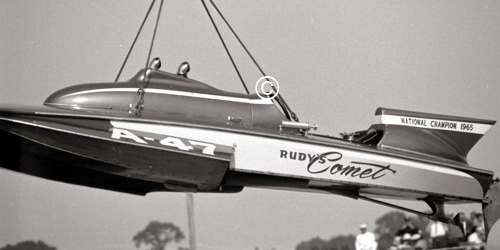

Adding all the boat builder’s name was an interesting delight. In the course of a few evenings, Phil would be telling me who built what boat and I was typing furiously as we went through each boat, one-by-one. Amazing the memory this man has. This all would have gone quicker, but most boats have a story and Phil and I would get sidetracked often as his stories veered us away from the task at hand.
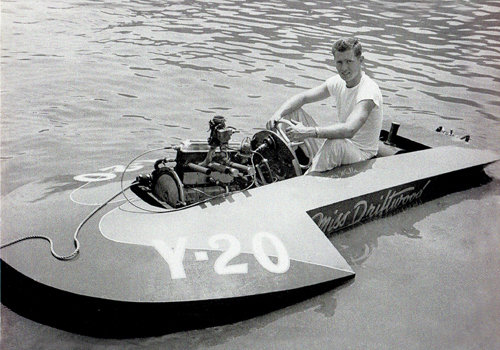
I was amazed at the number of boats that were either “Homemade built” or built from “xxxx plans”. Ya know, when I think about it, it is quite interesting (historically speaking), back then – how many inboard hydros were built by their owners and/or friends, jack a motor somewhere, tear it down, hot rod it out….and show up at a boat race ready to kick some ass. Maybe the boat sanctioning organizations, today could take a page from this and try to inject some classes that have this flavor. But on the other hand – maybe there is not enough young folks these days that would take on the challenge of building your own inboard hydro, trips to the junkyard or speedshop, steal a motor from something, build a trailer, find some used tires for it, etc…..then hope to have some cash leftover to drag it to all the races during the summer.
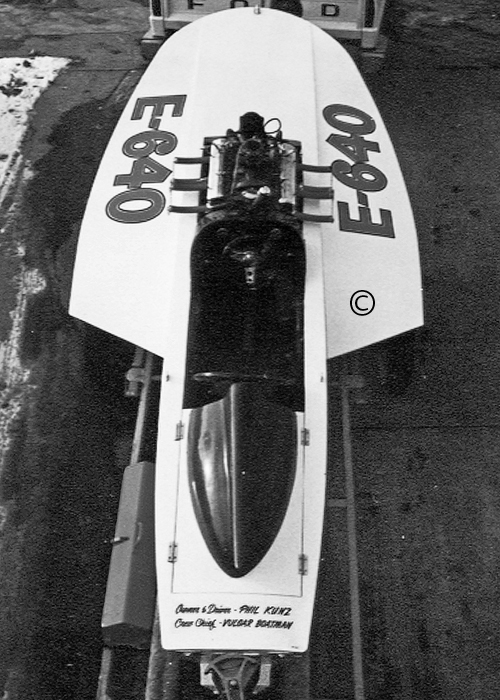
Completely restored from the ground up… Phil Kunz’s vintage 280 hydro, Helter Skelter and Jack Hines’ vintage 266, Miss Peg sparkle and gleam under the lights at the Toys For Kid’s Charity Race Car Show at Lang’s Chevrolet on Sat 16 Mar and Sun 17 Mar 2013. They drew a lot of attention. Brings back a lot of good memories seeing these wonderful hydroplanes. The best of the best is watching them doing an exhibition run on the race course. The mighty sound of the engines send chills up your spine and stands the hairs up on the back of the neck. Yeah! Too cool!
Phil posted these pictures in Facebook.
Sprint cars, midgets, late models, modifieds, stock cars, legend cars, dwarf cars, go karts, drag cars, compacts, vintage race cars were on display as well. I especially enjoyed the vintage race cars. It was a great show.
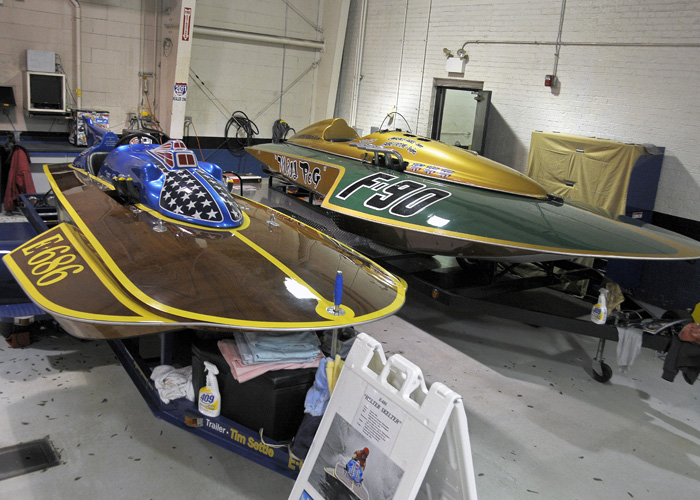
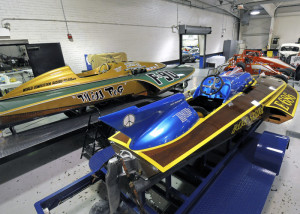
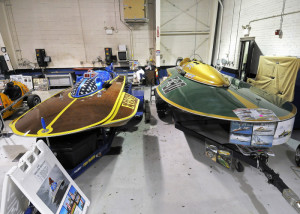
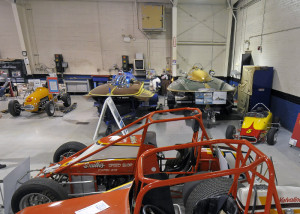
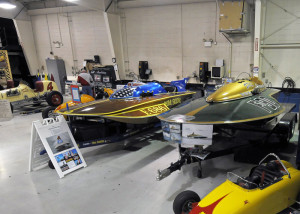
My wife is downstairs watching the Academy Awards, which brings up a thought about hydroplanes and movies. Here’s some movies that I know of that had inboard hydroplanes featured in them. If there were any others, let me know.
“Racing Fever – The Movie” brings forth the following movie trailer. If you haven’t bought and seen this 1964 movie yet, buy it and get ready to see a really ‘bad movie’ with the most stupidest, love story / bad guy storyline plot. It’s so stupid, you’ll laugh more than anything, but in the 60s, if would have probably been a movie one would typically walk out on, if it were not for the neat action footage of the old limited class hydroplanes doing their thing in Florida.
Magnificent Obsession (1954) trailer
starring Rock Hudson & Jane Wyman
I believe this has the unlimited boat, Hurricane which Rock Hudson’s playboy character owns and uses for one of his play toys.
Madison – Movie Trailer (long version)
Route 66
The famous TV show. This 1963 episode feature the 4-seater Miss Budweiser Unlimited hydro (Bernie Little converted it to drove folks around in) going in a head-to-head “race” with Ray Gassner’s Sunshine Baby IV, H-57 7-litre Lauterbach. Guy Lombardo makes a few appearances and his Port-O-Call Lounge, too.
Thanks to Brent McLean for sending in the video link
……..and Guido Romani send me this about an Italian movie that featured hydroplanes: Violenza sul Lago (about 1952/3) with Mario Verga boat “Laura” and a few passages with driver/owners Verga and Selva as actors!
Guido states video will be available later – but below appears to be the movie poster.
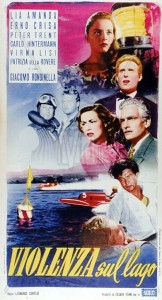
Phil Kunz & Bill Holder had a recently published article in Engine Builder magazine.
Click on each page to read the article.
Reprinted with permission from Engine Builder magazine, Babcox Media Inc. Copyright 2012.
In the new Vintage Hydroplane Plans section on TVH website, is an article with the plans for building a 280 cu in hydro by Wally Milosevich. That in itself is really interesting reading, but the cover photo is a blast too. Johnny Cash sitting on his bass player’s outboard racing craft. Check out the pic here if you haven’t seen it yet. I’ll post the article later….
We quote, “Several companies offer Stromberg lookalikes, but H&H says the best, most reliable and least troublesome are the real Strombergs made by the re-formed company, now from England.”
If you haven’t got the magazine already, we urge you to do quickly as it won’t available after 11th December 2012, and it’s packed with great features by the HRM team. We’ve scanned the relevant pages and added them here for when the mag’s no longer on the stands. Who were the winners? Navarro, pretty much, though the Edelbrock Slingshot 2×2 acquitted itself very well, too. The winners are summarised on page 104 – the last page below. Huge thanks, of course, to Marlan Davis at HRM. Dan Webb and of course, Mike Herman at Stromberg dealer H&H Flatheads for helping organise the awesome feature and helping us get involved.
A couple of old race programs added to our collection. Thanks to Dave Guetzlaff
1954 Grand Island & 1959 Daytona Int’l Speedway